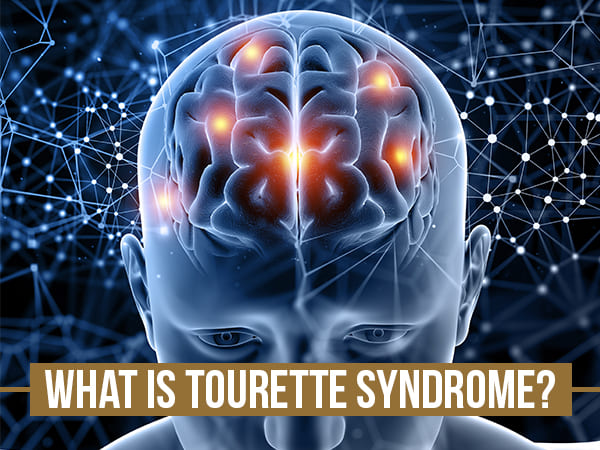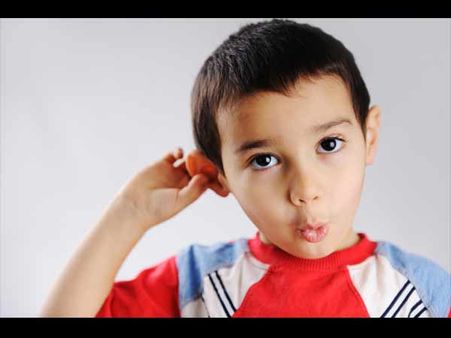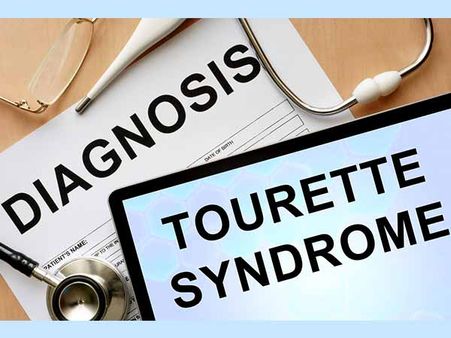Just In
- 3 hrs ago

- 7 hrs ago

- 11 hrs ago

- 14 hrs ago

Don't Miss
- News
 MLA Amanatullah Khan Detained By ED, Claims Aam Aadmi Party
MLA Amanatullah Khan Detained By ED, Claims Aam Aadmi Party - Finance
 LIC New Jeevan Shanti 858 Plan: How To Earn Rs 10,000 Pension Per Month After Retirement? Check Eligibility!
LIC New Jeevan Shanti 858 Plan: How To Earn Rs 10,000 Pension Per Month After Retirement? Check Eligibility! - Sports
 PBKS vs MI, IPL 2024: 'Jasprit Bumrah is the Greatest Match Winner' - Twitter Hails MI Pacer after Amazing Bowling
PBKS vs MI, IPL 2024: 'Jasprit Bumrah is the Greatest Match Winner' - Twitter Hails MI Pacer after Amazing Bowling - Movies
 Yeh Rishta Kya Kehlata Hai Controversy: YRKKH Actor Makes BIG Revelation About Shehzada Dhami: Alag Dhang Se K
Yeh Rishta Kya Kehlata Hai Controversy: YRKKH Actor Makes BIG Revelation About Shehzada Dhami: Alag Dhang Se K - Automobiles
 Aprilia RS 457 Accessories: A Detailed Look At The Prices
Aprilia RS 457 Accessories: A Detailed Look At The Prices - Education
 Karnataka SSLC Result 2024 Soon, Know How to Check Through Website, SMS and Digilocker
Karnataka SSLC Result 2024 Soon, Know How to Check Through Website, SMS and Digilocker - Technology
 Nothing Ear, Ear a With ANC, Up to 42.5 Hours of Battery Launched; Check Price and Availability
Nothing Ear, Ear a With ANC, Up to 42.5 Hours of Battery Launched; Check Price and Availability - Travel
Telangana's Waterfall: A Serene Escape Into Nature's Marvels
World Disability Day 2022: Tourette Syndrome Causes, Symptoms, Diagnosis And Treatment
Tourette syndrome, also called Tourette's syndrome (TS), is a neurological disorder which causes people to make sudden repetitive movements, twitches or sounds, which are called tics that they can't control. For example, someone suffering from Tourette syndrome might blink often or clear their throat every time or they may even blurt out words which they don't intend to say.
The onset of Tourette syndrome starts during childhood before the age of 18 and affects up to one per cent of the population [1], [2]. Boys are more likely to develop Tourette syndrome compared to girls [3].

In 1885, Tourette syndrome was named in the honour of Georges Gilles de la Tourette, a French neurologist, who first described the condition in nine patients who developed tics [4].
Causes Of Tourette Syndrome
Although the exact cause of Tourette syndrome is not known. Researchers believe that it is caused by genetic, environmental or developmental factors.

Symptoms Of Tourette Syndrome
The most primary symptom of this disorder is tics, which usually begin when a child is 5 to 10 years of age according to the Centers for Disease Control and Prevention (CDC). Tics can range from mild to severe.
Tics can be classified as either simple or complex motor tics and simple or complex vocal tics [5].
• Simple motor tics - These are sudden, brief, repetitive tics that involve a limited number of muscle groups. Examples of motor tics include eye blinking, shoulder shrugging, mouth movements and head jerking.
• Complex motor tics - These are distinct, coordinated patterns of movements involving many muscle groups. Examples of complex motor tics are facial grimacing combined with head jerking and shoulder shrugging, sniffing or touching objects, twisting, bending, jumping or hopping.
• Simple vocal tics - These are repetitive sounds that a person makes. These include throat clearing, sniffing, coughing, whistling, barking or grunting sounds.
• Complex vocal tics - When a person repeats their own words and phrases, others' words and phrases or involuntarily repeating the movements of another person.
Depression, anxiety, cognitive dysfunction, obsessive compulsive disorder (OCD) and attention deficit/hyperactivity disorder (ADHD) have been reported in patients with Tourette syndrome.


Risk Factors Of Tourette Syndrome
• Family history - Most children inherit this disorder from their families [6].
• Sex - Tourette syndrome is more common in boys [7].
When To See A Doctor
If you notice your child showing involuntary movements or sounds or showing an unusual behaviour which lasts for more than a week, it is recommended to consult a doctor.


Diagnosis Of Tourette Syndrome
There is no specific test to diagnose TS. The doctor will observe the symptoms to diagnose TS.
The criteria used to diagnose TS are: [8]
•
Multiple
motor
tics
and
one
or
more
vocal
tics
have
been
present,
although
not
necessarily
at
the
same
time.
•
Tics
begin
before
18
years
of
age.
•
Tics
happen
several
times
a
day
or
at
irregular
times
for
more
than
a
year.
•
Tics
are
not
caused
by
another
medical
condition
or
other
substances.

Treatment Of Tourette Syndrome
There is no cure for TS and children with mild tics don't require treatment. However, medications and behavioural therapy are recommended to help manage tics if they are severe.
• Behavioural therapy - It is considered the first-line treatment option. If the child is experiencing impaired quality of life, behavioural therapy is recommended. Two types of behavioural therapies such as habit-reversal training (HRT) and behavioural intervention for tics (CBIT) are useful in managing tics.
• Medications - Antipsychotic medications can help control tics and reduce its severity. However, they cause severe side effects like sedation, weight gain and acute dystonia [9].
Common FAQs
Q. Can Tourette syndrome ever go away?
A. Tourette syndrome usually begins during childhood, but the tics usually improve after several years. Most patients will have complete or nearly complete remission of TS after 21 years of age.
Q. Is Tourette syndrome considered a mental illness?
A. Tourette syndrome is a neurological disorder.
Q. How does Tourette's affect your life?
A. Tics can cause pain or injury, interfere with school, work or social life and stress.
Q. Does Tourette syndrome shorten your life?
A. Although, the disorder is generally lifelong, but people with TS have a normal life expectancy.
-
 pregnancy parentingWhite Lung Syndrome: What Are The Symptoms Of The Disease Rampant In China? How Does It Spread?
pregnancy parentingWhite Lung Syndrome: What Are The Symptoms Of The Disease Rampant In China? How Does It Spread? -
 healthWorld HIV/AIDS Day: What Is The Difference Between HIV and AIDS?
healthWorld HIV/AIDS Day: What Is The Difference Between HIV and AIDS? -
 healthDengue 101: Causes, Symptoms, Risks, Complications, Treatment, Prevention, Diet And More
healthDengue 101: Causes, Symptoms, Risks, Complications, Treatment, Prevention, Diet And More -
 healthDiarrhoea 101: Causes, Symptoms, Risks, Complications, Treatment, Prevention, Diet And More
healthDiarrhoea 101: Causes, Symptoms, Risks, Complications, Treatment, Prevention, Diet And More -
 health'Epileptic Nightmare' of Neurocysticercosis: The Hidden Epidemic of Parasites Causing Epilepsy
health'Epileptic Nightmare' of Neurocysticercosis: The Hidden Epidemic of Parasites Causing Epilepsy -
 pregnancy parentingLife-Threatening Risk During Pregnancy: Sepsis Can Harm Both Mother and Baby
pregnancy parentingLife-Threatening Risk During Pregnancy: Sepsis Can Harm Both Mother and Baby -
 healthStay Informed: The Hidden Dangers of Legionnaires' Disease and How to Prevent It
healthStay Informed: The Hidden Dangers of Legionnaires' Disease and How to Prevent It -
 healthMyths vs Facts: Can A Single Mosquito Bite Really Give You Dengue?
healthMyths vs Facts: Can A Single Mosquito Bite Really Give You Dengue? -
 healthTop 5 Reasons For Vaginal Rash: When You Should See A Doctor
healthTop 5 Reasons For Vaginal Rash: When You Should See A Doctor -
 healthCan Inhaling Menthol Help Improve Memory For Alzheimer's Disease?
healthCan Inhaling Menthol Help Improve Memory For Alzheimer's Disease? -
 healthWorld Vitiligo Day 2023: Are You At Risk Of Developing Vitiligo?
healthWorld Vitiligo Day 2023: Are You At Risk Of Developing Vitiligo? -
 beautyFather's Day 2023: Stretch Marks In Men, Causes And Treatments
beautyFather's Day 2023: Stretch Marks In Men, Causes And Treatments


 Click it and Unblock the Notifications
Click it and Unblock the Notifications



